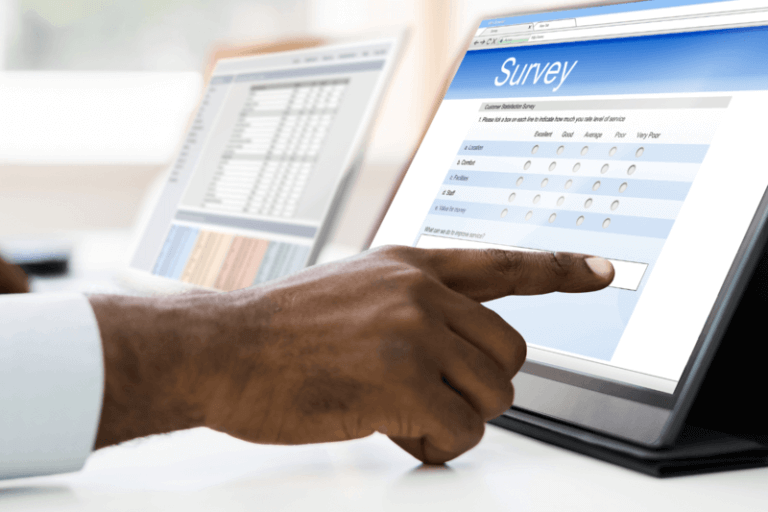Mobile data collection can reduce time, resources, and cost of extracting necessary information from the field, while improving the quality of the information collected.
Whether it is business, marketing, sciences, social sciences or other fields, data plays a very important role, serving as their respective starting points. Mobile technology has facilitated the collection of data in a way that you can do using any mobile device, such as a smartphone or tablet.
What is mobile data collection?
Data collection is the process of gathering and measuring information that enables one to answer stated research questions, test hypotheses, and evaluate results.
Mobile data collection (MDC) allows businesses and organizations gathering a lot of quantitative data using mobiles devices. MDC eases the collection of data by ensuring that this is directly uploaded to the platform server by the evaluators. Instead of recording information on printed paper, which is then manually entered into a database for analysis, data is input into a device and exported directly into a centralized database. Therefore, you can reduce the time, resources, and costs used in the task while improving the quality of the information collected.
Why you should start using mobile data collection?
In industries where workers complete tasks and fill out forms in the field, traditional data collection methods were generally done with pen and paper. Moving to mobile data collection, you can benefit from a process that is faster, cheaper, higher quality, and easier to integrate with other systems.
Some of the benefits from using mobile data collection are:
Reduced cost
By reducing or eliminating the need for paper and shorten the time needed by field workers to collect data, you can make some cost savings. It also removes the need for physical forms to be brought to the office. Traditional survey methods often require “double data entry”, where two separate workers enter the same data and one supervisor identifies differences between the two. Eliminating this redundancy adds up to significant cost reduction.
Increase speed
Mobile data collection eliminates or reduces time-consuming steps in the data collection process. This method not only diminish field data collection time; it also lowers the timeframe required for analysis and evaluation of data. Since real-time data is instantly uploaded, managers could be notified when additional information is available, or action needs to be taken. The faster turnaround time is essential to provide a better responsiveness to issues emerging on the ground.
Data quality
Mobile data collection allows a large degree of customization and the insertion of many quality checking tools. Therefore, not only reduces the possibility of error at the point of collection, but, in addition, filter down the data. Furthermore, mobile data collection tools allow for validation of the data being entered during an interview which reduce the chance of input errors. It also improves the transparency and visibility of the data reducing the risk of data leaks.
Improved control and flexibility of fieldwork
Since surveys realized using mobile devices can be updated (given even limited Internet connection or not connection at all) it is possible to fix small issues in questionnaire design such as typos, phrased questions, or filter logic. This method facilitates more efficient two-way communication between management and people working on the field.
Safer storage and backup
Paper can be lost, destroyed, or mishandled in many ways, which can create problems later if the data needs to be re-accessed. Digital mobile data, on the other hand, can be easily and inexpensively stored, copied, backed up, and -if needed- encrypted for secure future access.
User friendly method
As the programming guides the enumerator through the interview, they can spend less effort in making sure that all the correct questions are asked, and are thus able to better concentrate on other relevant aspects of interviewing. This benefit will be particularly evident when the conditions for asking a question are more complicated.
Quick access to data
Mobile data collection tools can provide a quick response capability as data can be ready for analysis in real time. Accessing data in a timely manner also allow quick responses to adjust certain activities.
Reduced environmental impact
Paper surveys are not environmentally friendly. A simple survey can waste thousands of gallons of fuel, hundreds of thousands of gallons of water, and up to twelve trees.
Mobile data collection tools offer many exciting and innovative possibilities for improving the quality of any research project. It enables cheaper and quicker access to a better quality of analyzable data than traditional methods and it allows increased responsiveness to needs arising in the field.
Many businesses and organizations are already experiencing the benefits of mobile data collection. When are you making the switch from paper forms to smart mobile forms?







